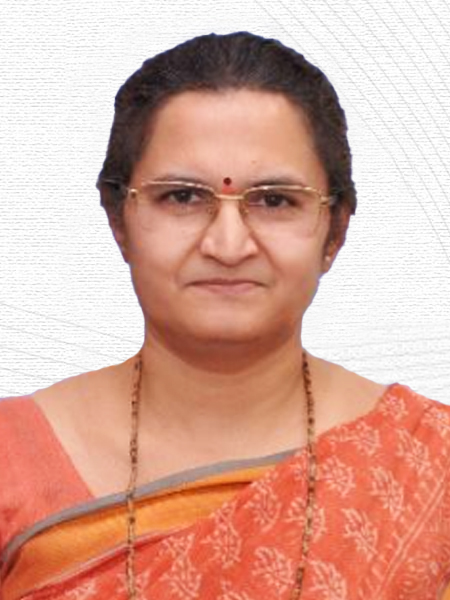
DATE: October 30 - November 3, 2023 |
VENUE: NITTTR Bhopal, India |
ORGANIZERS: Colombo Plan Staff College (CPSC) andNational Institute of Technical Teachers Training and Research (NITTTR), Bhopal |
Background
The emerging developments in the field of information and communication technologies (ICT) have created a new era of the teaching and learning environment through the use of digital learning, have been growing rapidly in recent years, and are expected to continue in the future. To leverage ICT technology, Technical and Vocational Education and Training (TVET) institutions need to invest in robust technology infrastructure to support digital learning, including high-speed internet connectivity, learning management systems, and devices such as computers, tablets, and smartphones. Further, TVET institutions need to develop high-quality digital learning content that is engaging, interactive, and accessible. Apart from an interactive digital learning environment, learning materials should foster and promote collaborative learning among students through discussion, group projects, and virtual classrooms. Moreover, TVET institutions must provide appropriate training for teachers and instructors in using new-age digital tools and technologies such as haptic technology, virtual, augmented, and mixed realities to deliver effective learning experiences and transfer knowledge and skills to their students to be future-ready for the world of work.
An innovative teaching method is basically the way we do something according to a plan to achieve a desired result, i.e., a learning outcome. So, the innovation methods we will discuss are simply the practical ways in which we can bring innovation to the teaching- learning system. The instructors in many TVET institutions are equipped with traditional teaching methods, including lecture methods, discussion methods, case studies, programmed instructions, role play, demonstrations, experiments, and educational field trips, among others. To achieve the desired learning outcomes, the innovation methods are the applied ways in which we can achieve innovation via inquiry-based learning to develop critical thinking and problem-solving skills. Instead of driving the class through Colombo Plan Staff College (CPSC), and National Institute of Technical Teachers’ Training and Research (NITTTR), Bhopal, India 13 a lecture-style format, the teacher poses questions, real-life scenarios, and problems. Students then research these topics individually or in groups to formulate their learning.
Digital transformation leads to massive changes in the skill sets needed for work and life. Effective use of digital technologies is also a key factor in meeting the Sustainable Development Goals. Teaching and learning need to address the new trends and challenges brought about by the introduction of ICT in almost all areas. TVET institutions have to adapt and make the best use of new technologies to provide relevant and quality TVET education. In the digital era, education has to embrace a range of innovative teaching methods that harness technology’s transformative potential. These methods transcend traditional classroom boundaries, aiming to engage and empower students in new and exciting ways. Flipped classrooms, for instance, have shifted the learning paradigm by encouraging students to absorb instructional content independently at home, freeing up class time for collaborative activities and discussions. Blended learning seamlessly combines in-person instruction with digital resources, offering a customized learning experience that caters to individual paces and preferences.
The digital era has ushered in an array of innovative teaching methods that leverage technology’s potential to foster engagement, customization, and collaboration in education and training systems. These methods not only address the challenges of today’s rapidly changing world but also equip students with the 21st-century skills and mindset to thrive in the future. India has developed rapidly in the field of IT. In line with this CPSC In-Country Program in collaboration with NITTTR, Bhopal aims to share expertise and best practices in digital learning in TVET and hopes to facilitate the digital transformation of teaching and learning in the TVET system in India.
Objectives
The objectives of the ICP on “Innovative Teaching Methods” are as follows:
- Deliberate the emerging trends and challenges of lR 4.0 to transform TVET education;
- Examine the innovative ‘Blended Education Learning and Augmented Training Approach (BELATA)’ for adoption in the TVET system”;
- Create a sample online course or courseware using an e-learning management system (MOODLE) and implement the blended learning environment.
- Build the capacity of the TVET Institute to incorporate digital learning to facilitate a flexible and effective learning platform.
Expected Outputs and Outcomes
The participants are expected to achieve the following outcomes upon completion of the program:
- Concept and application of digital learning in the TVET system.
- TVET institutes readiness and capacity to incorporate digital learning and platform.
- Strategic plan for the introduction of digital learning in TVET.
Program Contents
To achieve the objectives set forth, the following strategies will be employed in a consultative manner:
Theme Papers and Presentations on the following:
- Theme Paper 1: Integrated 21st Century Skills in TVET
- Theme Paper 2: Digitalization in TVET
- Theme Paper 3: TVET Digital Framework and New Skills
- Theme Paper 4: Tools and Applications for Digital Learning
- Theme Paper 5: Digital Learning Pedagogy and Platforms
- Theme Paper 6: AR, VR, and MR
- Theme Paper 7: Excellence of Leadership for Change Management through the PDCA Cycle in TVET
Workshops and Activities
- Workshop 1: Understanding and Analyzing TVET Institute Readiness for Implementing Digital Learning
- Workshop 2: Creating Digital learning Lesson Plans and Assessments, and Preparing eContent Script for Lessons
- Workshop 3: Create a Sample Online Course/Courseware Using LMS
National Seminar on “Virtual TVET Globalization in the Digital Era”
- Session 1: Virtual TVET and the 21st-Century Classroom
- Session 2: Global Digital Trends in Teacher Education and Training
- Session 3: TVET Digitalization and Industrial Linkages
- Session 4: Smart Industry Readiness Index
- Session 5: Q & A
Participants' Profile
The in-country program is designed for in-service technical teachers/trainers, heads of departments (HODs), officials from the Ministry of Education, and relevant TVET stakeholders
Date and Venue
The five-day training cum workshop shall be held from October 30, 2023 to November 3, 2023, in NITTTR, Bhopal, India.
Facilities and Requirements
To conduct the program smoothly, the following facilities are required:
- Laptop Computers (preferably participants to bring their laptop)
- Internet Connection (LAN/WAN)
- Audio and Video Equipment
- Multimedia Projector and Projection Screen
- Flipcharts and large papers (for brainstorming activities)
- Pens/Markers
Program Management and Resource Persons
|
|
|
|
|
|
|
|
|
|
|
|
|
|
|
|
|
|
|
|
Program Schedule


















